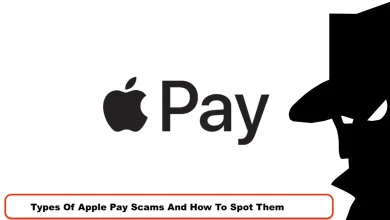What Is Ethical Hacking? Learn Step By Step
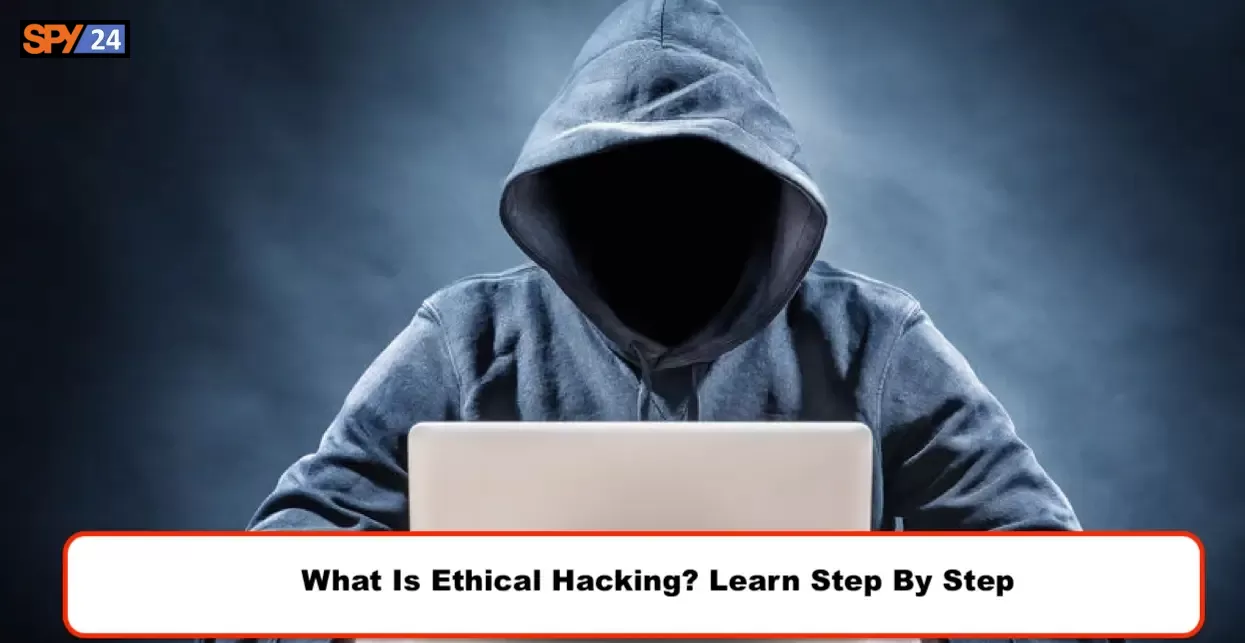
You might think that all the hacking attempts are malicious, but believe it or not, there is some kind of hack that is called “Ethical hacking.”
As it comes from the name, it’s here to do something different from malicious hacking. But how?
If you want to know what exactly ethical hacking is and how it is different from malicious hacking, read the following article.
What Is Ethical Hacking?
The term “ethical hacking” refers to a legal attempt to obtain unauthorized access to a computer system, program, or data.
Duplicating the tactics and behaviors of malicious attackers is part of an ethical hack. Before a malicious attacker has the chance to exploit a security flaw, this technique helps to identify and resolve them.
Actually, penetration testing for security reasons is called ethical hacking. In other words, ethical hacking is here to help us prevent malicious hacking from doing any harmful action.
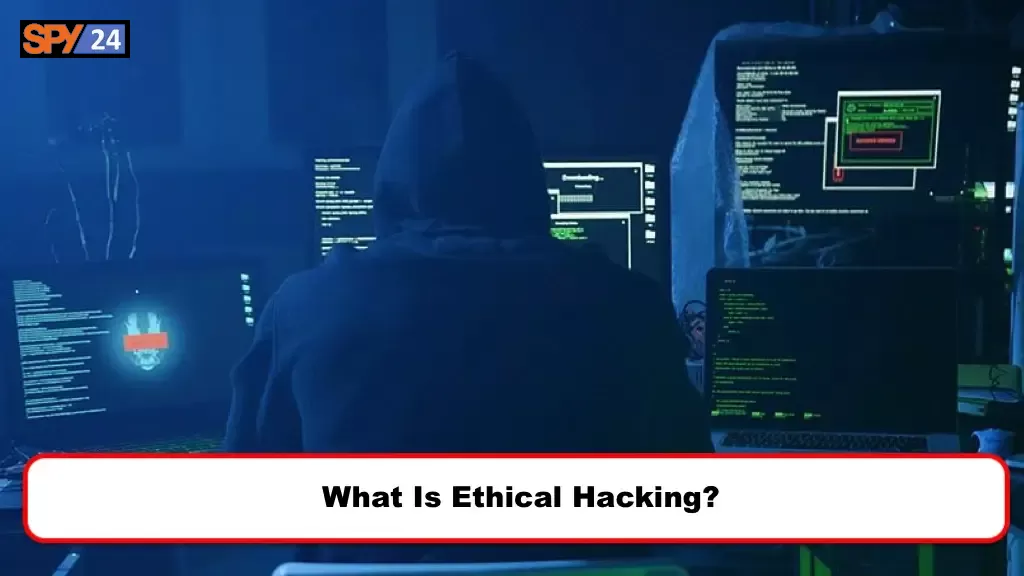
Imagine that you want to protect your organization from malicious hackers or even want to check your kids’ computers or phones. You don’t want to damage their system, and this is what we call “Ethical Hacking.”
You have to know some hacking techniques to be able to get into their system. Of course, some apps like SPY24 can simplify your job in many cases.
The Importance of Ethical Hacking
Ethical hacking is a must these days because it helps us prevent the network from cyber-attacks.
Without ethical hacking, organizations will be easily damaged by cyber-attacks. For example, banks will be susceptible to any tiny cyber threats as they are a good target for hackers.
As a result, banks invest tons of money in ethical hacking in order to safeguard their money against malicious attacks.
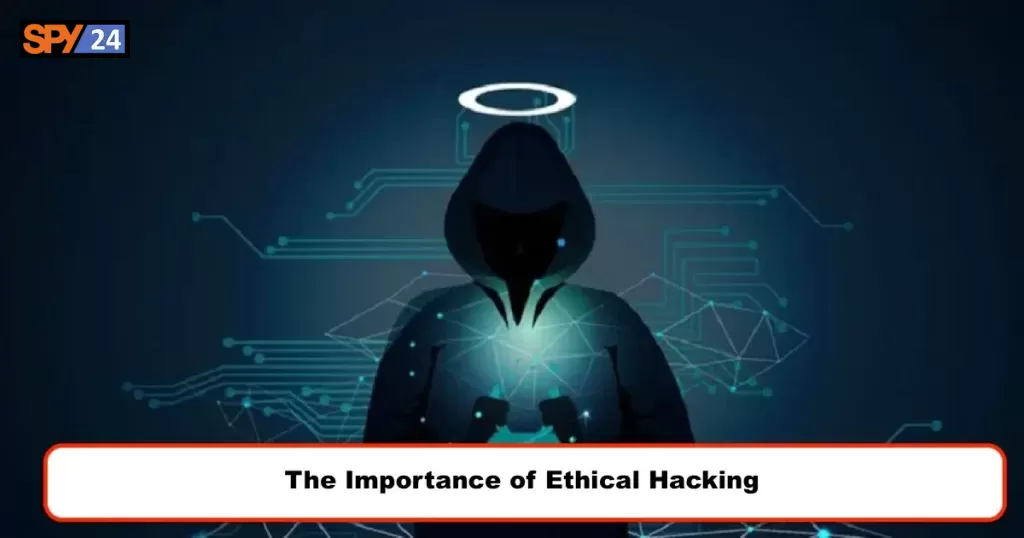
As you know, the security of a network is a valued requirement due to the number of hacks and information breaches. If you want to catch a hacker, you need to have the skills and imagination of a malicious hacker and use it in a legal way. This is called ethical hacking.
In fact, it’s critical to understand how hackers operate and work. Experts must put themselves in the shoes of a hacker to be able to do their work as a hacker because it is never feasible to eliminate all threats from a system completely.
Key Benefits of Ethical Hacking
Here are the most important benefits of ethical hacking:
Fixing Vulnerabilities
Removing your system’s vulnerabilities is the first benefit of using ethical hacking. You can take proactive security measures for your company’s cybersecurity and address any flaws by engaging in ethical hacking.
Resolving underlying concerns before a cybercriminal uses them prevents severe damage to your precious data.
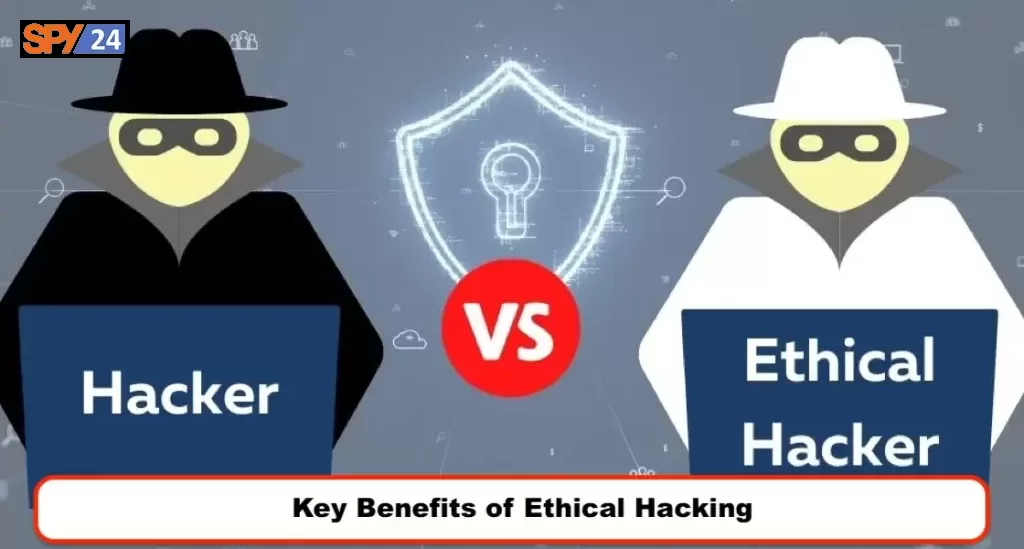
Ensuring Compliance with Updated Data Security Requirements
Your company’s compliance with the constantly changing standards of cybersecurity, such as GDPR and ISO 27001, is ensured by ethical hacking. In addition, taking this action protects you against fines for non-compliance.
Training Employees
Experts can provide feedback and security recommendations when you engage them to do ethical hacking on your business’s systems. This way, your employees can learn many things about security and how they can prevent future attacks.
Offering Useful Insights into Future Requirements
The ethical hacking strategy adds a crucial perspective to your company and helps you invest in future requirements. In fact, you can identify flaws and gain insights into the sectors that require improvement and where your future security investments should be focused.
Improving Your Awareness of Upcoming Cybersecurity Threats
Showing your customers and employees that you are committed to security is possible with ethical hacking. These specialists can assist your team by teaching them about the most current techniques cyber offenders are using to raise their awareness.
Key Concepts of Ethical Hacking
To ensure you’re doing an ethical hack, you have to abide by several key concepts. Here are key concepts of ethical hacking:
Stay Legal
The first and most important concept of ethical hacking is to act legally. Try to obtain the required approval before executing your hack and getting into a system.
Define your scope
To keep the ethical hacker’s work legal and within the company’s authorized borders, define the scope of the job and the level of your access.
Report vulnerabilities
Report all identified flaws discovered throughout the assessment to the company. If possible, offer advice on how to address these issues.
Respect data sensitivity
As an ethical hacker, you might be required to sign a non-disclosure agreement (NDA) in addition to the other conditions and restrictions imposed by the evaluated organization, depending on the data sensitivity.
What Is the Difference between an Ethical Hacker and a Malicious Hacker?
The intention of hacking is the main difference between ethical hackers and malicious hackers.
As it comes from the name, malicious hackers do hacking for malicious purposes, while ethical hackers do conversely. Most of the time, ethical hackers’ job is to prevent malicious hackers from damaging the system.
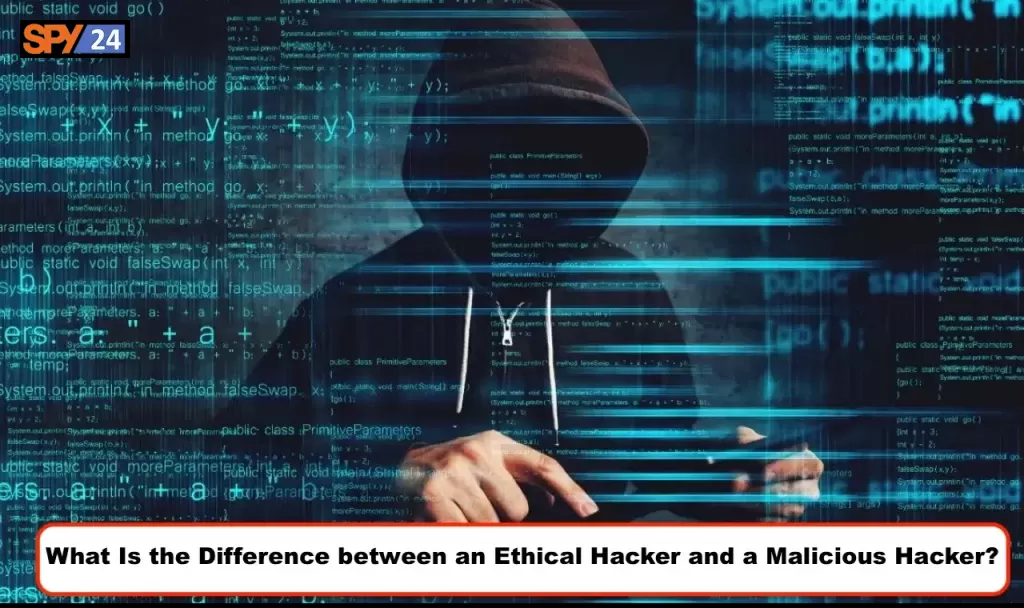
Ethical hackers’ services are utilized to validate, check, and build software security. So they help us improve the security of our system, making a framework in our business or organization to be safe against potential threats.
What Skills Should an Ethical Hacker Have?
You need to know the following skills if you want to become an ethical hacker:
Networking Skills
Becoming an ethical hacker requires a lot of networking abilities. An interconnection of many devices, generally known as hosts, used multiple connections to transmit or receive data or media is known as a computer network.
Computer Skills
The term “hacking” refers to the practice of using computers to discover possible dangers. As a result, one of the abilities needed for ethical hacking is strong and reliable computer knowledge.
Linux Skills
Linux is a great operating system, which is free, open-source, and the most secure operating system out there.
Despite the fact that Linux does not have 100% security, it has several viruses that make it less prone than any other platform.
Furthermore, anti-virus software is not required. As a result, for hacking, having Linux expertise is required.
Programming Skills
Another important attribute for becoming an ethical hacker is programming abilities. To be an ethical hacker, you’ll need to understand the various programming languages utilized by hackers and the languages needed for hacking. Here are some of the required programming languages:
- Python
- SQL
- C
- JavaScript
- PHP
- C++
- Java
- Ruby
- Perl
- HTML
SQL Skills
Becoming a successful ethical hacker requires a strong understanding of SQL. In Cross-platform Web Hacking, SQL is a programming language that interacts with a database.
Weak web application login procedures are bypassed with SQL injection, data is deleted from the database, and so on. So you need to specifically focus on SQL along with other languages.
Hardware Knowledge
For ethical hacking, an Ethical Hacker must have a basic understanding of computers. The CPU, monitor, mouse, keyboard, data storage, graphics card, sound card, and motherboard are all examples of physical components of a computer.
The hacker must understand the device or how it works in order to hack a machine controlled by a computer.
He/she needs to know how they will understand how the motherboard operates, how USBs transmit data, how CMOS or BIOS work together, and other things.
Cryptography
Cryptography is the study and implementation of strategies for secure communication when other parties are present, also known as adversaries.
It discusses the development and assessment of processes that prevent anonymous third parties from stealing data shared between two firms and seeing the many aspects of information security.
Cryptography is the process of transforming plain text data into ciphertext, which is an incomprehensible form, during transmission in order to make it unreadable to hackers. An ethical hacker’s task is to guarantee that no material from inside the company gets leaked.
Database Skills
Database skills are another important competency required for every white hat hacker. In order to discover security flaws, hackers must be familiar with how databases are structured and operated.
Hacking also requires the ability to manipulate data and access restricted information, which hackers must be able to do using database management tools. White hat hackers would find it difficult to do their job without these skills.
Problem-solving Skills
As an ethical hacker, you need to be able to discover flaws in computer systems and networks and then come up with solutions to the problems. You must be able to suggest innovative fixes for potential security issues after you’ve recognized one.
So you’ll need strong critical thinking and problem-solving abilities in order to be successful as an ethical hacker. You must have a broad enough perspective to see how all of the pieces fit together in the big picture.
Also, in order to convey your findings to employees who aren’t professional hackers, you’ll need superb interpersonal abilities.
Thanks to tools like SPY24, you can hack other systems without being skilled in these things.
What Certifications Should an Ethical Hacker Obtain?
To become a master in the mentioned skills, you’d better obtain the following certifications:
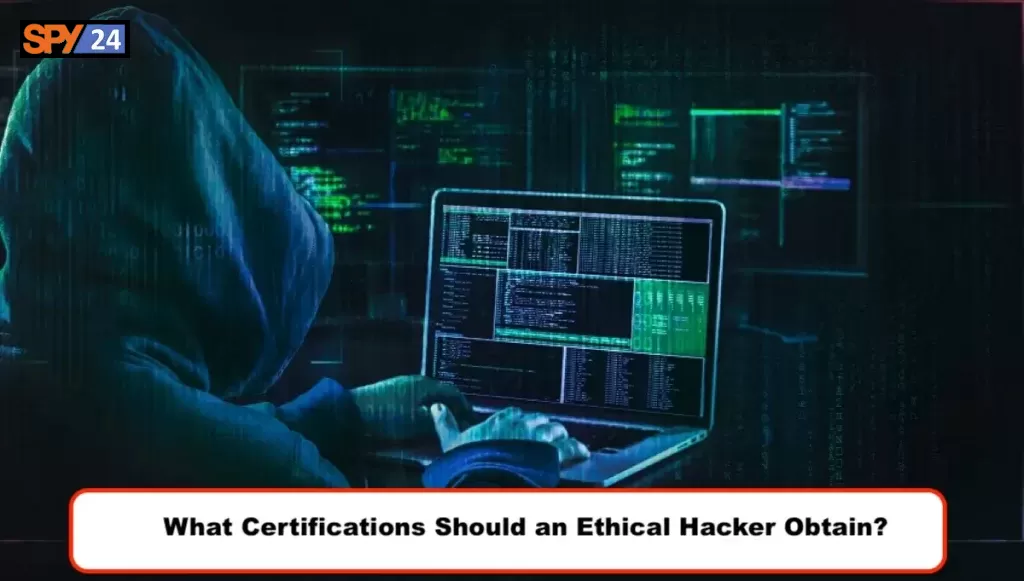
CompTIA PenTest+
It’s a great starting-level penetration testing certification that is simpler to get than other pen testing certifications, such as the OSCP. It is a huge stamp of approval for anyone who wants to be a penetration tester.
Certified Ethical Hacker (CEH) Certification:
CEH teaches the latest hacking tools and methods used by hackers. Several advantages may result from earning your CEH certificates, such as high pay, employment stability, and more. Earning your CEH certification is the best way to advance your cybersecurity abilities and knowledge.
Offensive Security Certified Professional (OSCP)
It provides penetration testing education via the Offensive Security ethical hacking certification.
This is a recommended certification for “information security experts who want to make a serious and meaningful move into the realm of professional penetration testing.” OSCP is targeted more towards current cyber security experts.
Certified Security Testing Associate (CSTA)
This certification is in association with the National Cyber Security Centre. In this certification, learners are taught how to identify and understand the threats, strategies, tactics, and laws required to safeguard their vital data.
Computer Hacking Forensic Investigator (CHFI)
Achieving the Computer Hacking Forensic Investigator certification proves that you have the competency and abilities to identify hacking assaults, gather enough evidence required to report the crime and pursue the perpetrator, as well as to conduct an examination that helps you avoid future assaults.
GIAC Penetration Tester (GPEN)
The Global Information Assurance Certification (GIAC) developed and administered the GIAC® Penetration Tester (GPEN). This is actually a vendor-neutral certification. The GPEN certification demonstrates advanced-level penetration testing capabilities and is recognized worldwide.
What Are Some Limitations of Ethical Hacking?
As mentioned earlier, ethical hackers cannot do anything beyond a defined scope to make an attack successful. However, you can discuss out-of-scope attack potential with the organization before performing it. Overall, there are 3 limitations to ethical hacking:
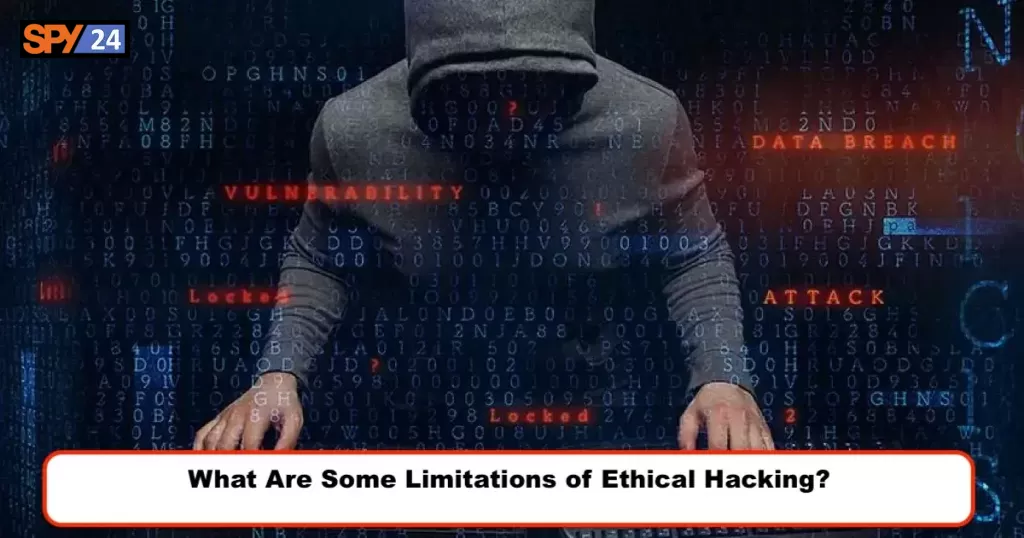
Limited Scope
You’re not authorized to hack out of the scope, even if this act leads to successful hacking. You must get permission from the organization. Otherwise, you might get in trouble.
Resource Constraints
Malicious hackers have fewer restrictions than ethical hackers when it comes to time. Additional ethical hackers’ limitations include computing power and budget.
Restricted Methods
Many times, employers ask ethical hackers to omit test instances that may cause servers to shut down (e.g., Denial of Service (DoS) assaults). This is another limitation that might make ethical hacking much more difficult compared with malicious hacking.
The Roles and Responsibilities of an Ethical Hacker
Here are common roles ethical hackers can have:
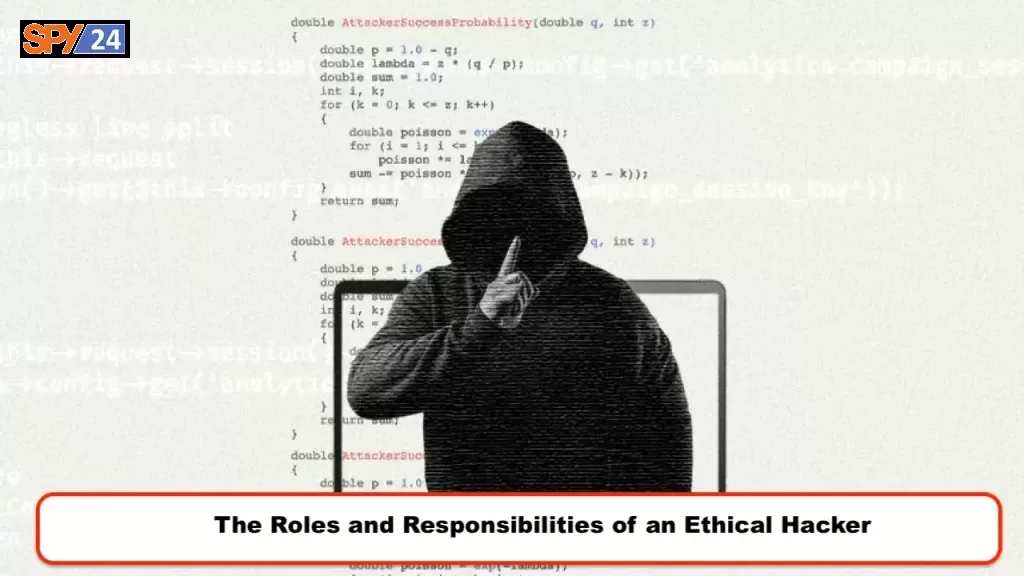
- Penetration Tester.
- Vulnerability Assessor.
- Information Security Analyst.
- Security Analyst.
- Certified Ethical Hacker (CEH)
- Ethical Hacker.
- Security Consultant.
- Security Engineer/Architect.
Also, here are the responsibilities of ethical hackers in these roles:
Hacking their own Systems
Hackers who are ethical operate inside their own networks to disclose impending dangers and flaws. Before hackers discover flaws in the system, they are employed to locate them.
Disclose the Intent of Malicious Hackers
As a precautionary measure against hackers, ethical hackers are employed as computer security experts. Early discovery of vulnerabilities allows them to be fixed, preventing hackers with malicious objectives from gaining access to sensitive data.
Document and Report the Results
All of your findings and potential threats must be documented properly. The companies hire you to do the most important job of all: reporting flaws and vulnerabilities that are a threat to security.
Ensuring the Safety of the Confidential Information
All of your discoveries must be kept safe and never shared with others. You should never agree to share your findings and observations under any circumstance.
Abide by Non-Disclosure Agreements
To keep the information of the organizations safe, ethical hackers must sign secret agreements. If hackers disclose any sensitive data, legal action will be taken against them.
Repair the System’s Security
As an ethical hacker, you have to restore and repair the security loopholes of the system. In fact, you have to prevent the system from being targeted in the future.
Different Types of Ethical Hacking
Here are some types of ethical hacking:
White-box Testing
In white-box testing, the ethical hackers have complete access and understanding of the system or application they are attacking.
White box testing can identify hidden problems from other types of testing because of its deeper visibility.
Gray-box Testing
The testing of software with some basic understanding of its internal workings is referred to as a grey box.
The hacker has restricted knowledge to assess the strengths and flaws of a target’s security network using black box testing, which is an ethical hacking approach.
Black-box Testing
In this type of hacking, the hackers test the software from outside the system before entering it via a brute force approach since they don’t already have any information about the system.
This hacking method is often used to discover security flaws in a network or system that an attacker might exploit. It is one of the riskiest forms of hacking in cyber security. They may be found in the library.
Web App Hacking
The practice of exploiting web-based application security flaws or gaps is referred to as web application hacking.
Web apps are generally created in HTML, CSS, and JavaScript, although they may also be built in other languages like PHP and Ruby on Rails.
It is feasible to take specific actions on a website without being authorized due to the nature of these languages and how web browsers read them.
Remember that SPY24 provides many features to hack social media apps without being detected.
Hacking WiFi Networks
Wireless hacking is referred to as wireless hacking into a computer network without authorization, typically by exploiting weak points in the system’s security.
System Hacking
The sacrifice of computer software to gain access to a particular computer and steal sensitive data is known as computer hacking.
The hacker exploits the flaws in a computer system to obtain information and data, taking unfair advantage of the situation. Gaining access, escalating privileges, and hiding data are all goals of system hacking.
Web Server Attacks
On the server side, web content is produced in real-time as a software application. With DoS attacks, port scans, and Sniffing, the malicious hackers are able to assault the webserver and steal private and business data, passwords, and lots of other things. Ethical hackers should use their skills to prevent them from using data, sabotaging, blackmailing, and stealing money from websites.
Ethical Hacking Tutorial Index
Finally, it’s good to take a look at the ethical hacking tutorial index to have an overall understanding of the subject matter:
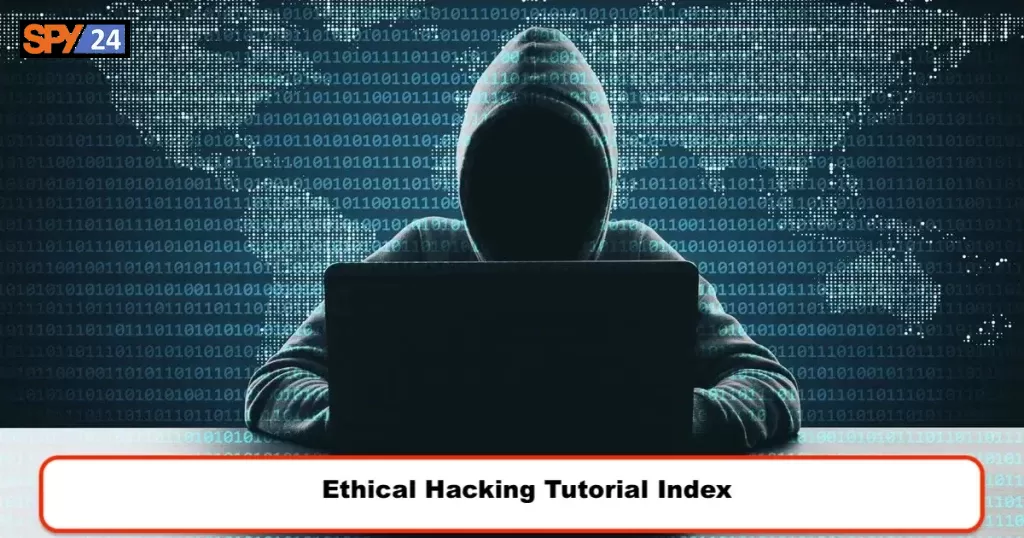
- Overview
- Hacker Types
- Famous Hackers
- Terminologies
- Tools
- Skills
- Process
- Reconnaissance
- Footprinting
- Fingerprinting
- Sniffing
- Sniffing Tools
- ARP Poisoning
- DNS Poisoning
- Exploitation
- Enumeration
- Metasploit
- Trojan Attacks
- TCP/IP Hijacking
- Email Hijacking
- Password Hacking
- Wireless Hacking
- Social Engineering
- DDOS Attacks
- Cross-Site Scripting
- SQL Injection
- Pen Testing
- Ethical Hacking Useful Resources
- Quick Guide
- Useful Resources
Conclusion
Ethical hacking is not different from malicious hacking in terms of techniques and strategies. The main difference between these two is the purpose of hacking. In ethical hacking, the hacker tries to prevent damage or infiltration. In malicious hacking, on the other hand, the hacker wants to damage a system or steal something important. Some users might misunderstand this, as the purposes might be defined differently, depending on the situation. Sometimes, you need to attack the hacker’s system to prevent them from doing their malicious job. So try to contemplate your purpose and the concept of hacking and then do it.
FAQ
Here are some common questions about the topic.
What Are the 3 Types of Hacking?
Black, white, and gray hat hackers are the three types of hackers out there. Hackers are often portrayed as finding flaws to give unlawful access to computers, systems, or networks. Of course, not all hacking is harmful or unlawful.
What Problems Does Hacking Identify?
Malicious hacking may lead to a loss of customers, financial and personal information, litigation, loss of reputation, and even the closure of a firm. So an ethical hacker should realize these problems and come up with solutions to prevent further damage and, if possible, restore the stolen data.
What Are the Advantages of Hacking?
Ethical hacking might have some advantages, like:
- Recovering stolen information, especially passwords.
- Performing penetration testing to increase the security of systems.
- Taking adequate measures to prevent breaches.
What Are the Disadvantages of Hacking?
Here are some drawbacks of hacking:
- Security breach.
- Unauthorized access to personal and business information.
- Privacy violation.
- Damaging system operation.
- Financial loss.
What Is Ethical Hacking and What Is It Used for?
An authorized attempt to gain unauthorized control of an electronic system, app, or data is referred to as ethical hacking. In terms of strategies and techniques, there is no obvious difference between ethical and malicious attacking, but the purpose is to do an ethical hack. It’s actually used to identify vulnerabilities in a system and help it when malicious hackers target it.
Who Is Best Suited for a Career in Ethical Hacking?
Someone who is skilled in:
- Computer science and techniques
- Programming languages
- Database and SQL
- Linux
- Cryptography
- Web app development
- WiFi technologies
What Are Common Career Paths for Someone in Ethical Hacking?
Here are steps to becoming an expert in ethical hacking:
- Learning LINUX/UNIX
- Mastering C programming language
- Practicing to remain anonymous
- Becoming skilled in networking
- Learning SQL, database, HTML, Java, etc.
- Getting to know all the vulnerabilities
- Exercising malicious hacking
Is Ethical Hacking Legal?
An ethical hacker’s access to a network is validated by the company that controls that network, making it legal. They are not only allowed to do all the things they do to identify cybersecurity flaws; they are doing it in order to enhance protection against actual cyber-attacks. In sum, ethical hacking is legal.
SPY24 Install application free The Most Powerful Hidden Spying App to Monitor Android, IOS Cell Phone & Tablet Device Remotely. Best Android Parental Control App for Kids & Teens Online Safety.
Now take the liberty to monitor Android, and IOS devices with exclusive features better than ever before Monitor all Voice & Text Messages Communication records, Listen to & Watch Surroundings in Real-time Unleash Digital Parenting with Android, IOS Spy App Spy (Surround Listing & Front/Back Camera Bugging) IM’s VoIP call recording on Android OS 13 & above With 250+ Surveillance Tools at your fingertips using Android Tracking & Parental Monitoring Software.
